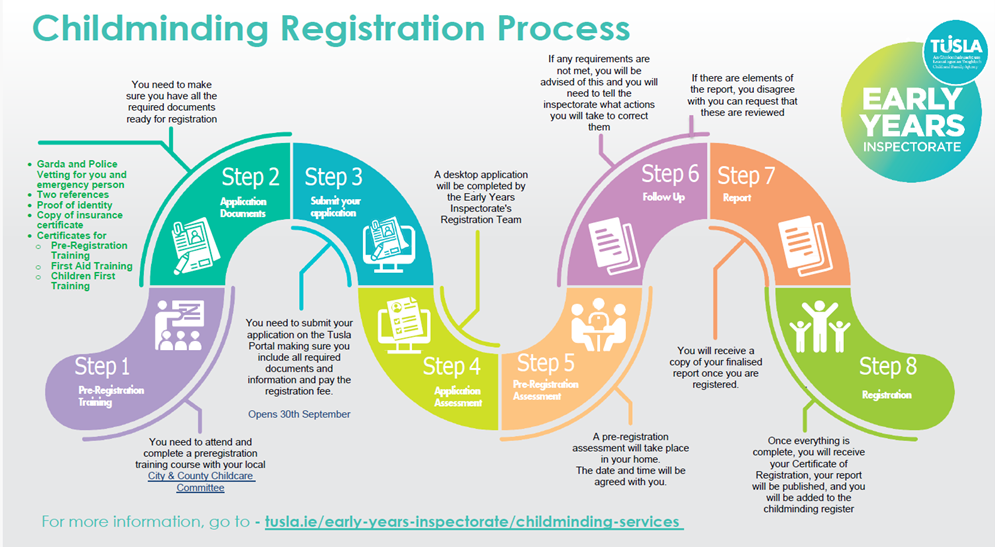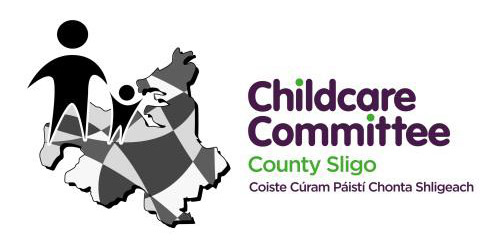Are you interested in running a childminding service?
If you are a childminder or are interested in becoming a childminder, Sligo Childcare Committee provides a number of supports such as network and training events, setting up your service, policies and procedures as well as funding opportunities and ongoing support.
√
A childminding service involves an individual taking care, by themself, of children under the age of 15 years, for payment, in the childminder’s home.
√
A childminder is self-employed and provides a paid childcare service for a minimum of 2 hours a day in their own home.
√
If you are employed by a child’s parents and you look after the child/children in their home, you cannot register as a childminder.
√
If you only mind children who are closely related to you, e.g. your grandchildren or nieces/nephews, you do not need to register as a childminder.
See new Regulations and Explanatory Guidance below:
Child Care Act 1991 (Early Years Services) (Childminding Services) Regulations 2024
Under the new Child Care Act 1991 (Early Years Services) (Childminding Services) Regulations 2024 all childminders must register with Tusla.
To register with Tusla you must have the following documents:
√
Garda Vetting & Police clearance for the childminder & emergency cover person/s
√
Two references
√
Proof of identity
√
Copy of insurance certificate
√
Certificates for Pre-Registration Training, First Aid training and Children First Training

The Childminding pre-registration training is a mandatory course for anyone who intends to register with Tusla for a childminding service.
To take this training course you must be:
√
18 years old or over
√
Self-employed and providing a paid childcare service in your own home
√
Either currently working as a childminder and intending to register with Tusla, or Intending to work as a childminder and register with Tusla
If you are unsure as to whether or not you are eligible to register with Tusla, contact your local Childminding Development Officer for information and support.
The aim of the training programme is to help you:
√
Understand the new childminding regulations.
√
Apply the regulations to your childminding practice.
√
Understand the Tusla registration process for childminders.
√
Understand the documentation required to register with Tusla.
√
Access supports and resources.
![Poster_Childminding_Sligo_00001[1]](https://www.sligochildcare.ie/wp-content/uploads/2024/10/Poster_Childminding_Sligo_000011-724x1024.jpg)
![Poster_Childminding_Sligo_00002[1]](https://www.sligochildcare.ie/wp-content/uploads/2024/10/Poster_Childminding_Sligo_000021-724x1024.jpg)
To register your interest in attending a Pre-Registration course or for furter information,
please contact our offices on 07191-48860 or email developmentofficer@sligochildcare.ie
